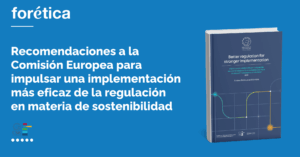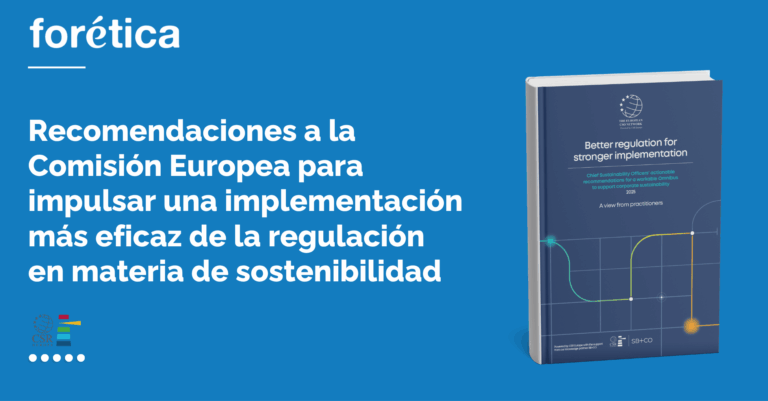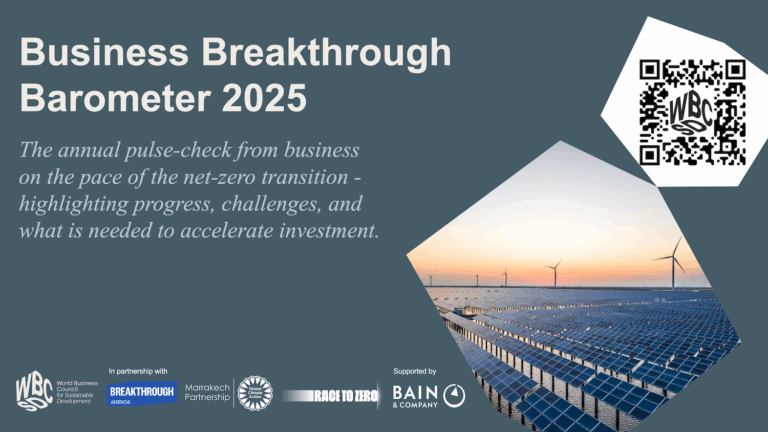Para alcanzar un objetivo, en un mundo de recursos limitados, es importante ser eficiente. Si además dicho objetivo requiere una respuesta urgente, acertar en la selección de las acciones a llevar a cabo se vuelve crucial.
En la lucha contra el cambio climático -objetivo global, necesario y urgente- contamos con información privilegiada que nos posiciona en un buen punto para actuar. Conocemos a ciencia cierta quién es el responsable del 60% de las emisiones de Gases de Efecto Invernadero (GEI) y del consumo del 78% de la energía mundial[1] y, además, sabemos dónde encontrarlo. Hablamos de las ciudades.
Las ciudades se concentran en tan sólo un 2% de la superficie terrestre y tenemos su ubicación exacta. Sin embargo, no por conocida se trata de una tarea sencilla. Los entornos urbanos son complejos y presentan multitud de interacciones que es necesario considerar para aspirar al cumplimiento de los objetivos previstos en la Agenda 2030 de Naciones Unidas (los Objetivos de Desarrollo Sostenible).
Tal y como recogemos en el estudio “Cambio Climático y Ciudades: La acción de las empresas”, publicado en noviembre de 2017, nos encontramos ante un gran reto que plantea un sinfín de oportunidades, que incluso han sido valoradas económicamente en 3,7 trillones de dólares en ahorros y nuevas oportunidades[2]. Para empezar, según los expertos, las ciudades son y serán en un futuro no tan lejano los entornos que albergarán, no sólo a la mayor parte de la población mundial, sino también parte importante de la actividad económica.
En 2050, se estima que el 70% de la población global vivirá en ciudades[3] lo que implica de manera aproximada –considerando el crecimiento demográfico- que tan sólo en las ciudades se concentraría el equivalente a la población total actual. Las ciudades han de convertirse, por tanto, en entornos realmente resilientes, capaces de adaptarse rápidamente a los cambios económicos, sociales y ambientales, manteniendo una calidad de vida decente para sus habitantes. Y es que un entorno urbano sostenible es la única alternativa viable para garantizar una vida mejora para los ciudadanos, la utilización eficiente de los recursos y la prosperidad económica.
En el Acuerdo de París, las ciudades –y por tanto sus gobiernos, las organizaciones y empresas que operan en ellas y los ciudadanos- están llamadas a tomar medidas ambiciosas en la lucha contra el cambio climático. Y es que es importante comprender la doble aproximación de las ciudades al cambio climático. Por una parte, como agente generador de impactos: fundamentalmente a través de los modelos de consumo y producción y sus consecuencias. Por otro, como receptor vulnerable de sus efectos: la calidad de vida, la salud y los activos de las personas, especialmente para la población más vulnerable se verán afectadas por el aumento del nivel del mar, de las precipitaciones y las inundaciones o el incremento en la frecuencia de eventos climáticos y temperaturas extremas.
Es fundamental que las ciudades aumenten su resiliencia frente al cambio climático y favorezcan una transición hacia modelos de ciudad baja en carbono. La acción climática es necesaria y urgente en términos de mitigación y adaptación de las ciudades.
A medida que las ciudades se convierten en actores más relevantes en la acción climática, también se hace más necesaria la financiación e implicación del sector privado. Así pues, existe una necesidad urgente de ampliar los modelos de participación que permitan a las ciudades y las empresas colaborar desde las primeras etapas de planificación y aprovechar toda la capacidad innovadora y los recursos del sector privado.
Conscientes de esta situación de cambio en la manera de trabajar y afrontar los grandes retos globales, las 50 grandes empresas que forman el Clúster de Cambio Climático impulsado por Forética en España, han querido profundizar en esta cuestión durante el año 2017 y han identificado cinco palancas a través de las cuales se puede avanzar hacia la consolidación de ciudades sostenibles a través de la colaboración público-privada: la movilidad sostenible, la eficiencia energética y el fomento de las energías renovables, el desarrollo de infraestructuras y conexiones inteligentes, el impulso de hábitos de vida sostenibles y saludables y la apuesta financiación e innovación al servicio de la acción climática.
Entre las claves para una colaboración de éxito entre empresas y ciudades, según se recoge en el estudio, cabe destacar: la incorporación de la relación desde las fases más tempranas de planificación estratégica, establecer una relación de trabajo basada en la transparencia y confianza y mejorar el nivel de comprensión de las necesidades de las ciudades, así como de la capacidad de respuesta del sector privado en términos de tecnologías disponibles, modelos comerciales o estrategias de negocio basadas en la sostenibilidad. Esta aproximación de trabajo permitirá a las empresas capitalizar antes los beneficios y oportunidades derivados de las soluciones desarrolladas, mantener su actividad de manera más eficiente y sostenible y favorecer la calidad de vida de los habitantes de las ciudades y de los consumidores, contribuyendo a resolver los retos de la sostenibilidad actual y a crear viabilidad económica a largo plazo. Según el World Business Council for Sustainable Development (WBCSD), para las compañías con visión de futuro, la Nueva Agenda Urbana es la nueva agenda de negocios.
Lo sabemos, las ciudades son agentes determinantes en la lucha contra el cambio climático. El entendimiento y la colaboración entre gobiernos, sector empresarial y ciudadanos, las claves para el desarrollo y puesta en marcha de las acciones más eficientes para conseguirlo. Actuemos, es la única opción. “La batalla por un desarrollo sostenible se ganará o se perderá en las ciudades” Joan Clos, Director Ejecutivo de UN Habitat.
[1] World Business Council for Sustainable Development http://www.wbcsd.org/
[2] Business and Sustainable Development Commission http://businesscommission.org/
[3] UN Habitat https://unhabitat.org/urban-themes/climate-change/
Publicado el 19 de enero de 2018 en la revista Buen Gobierno y RSC de El Economista (pág. 14)


















